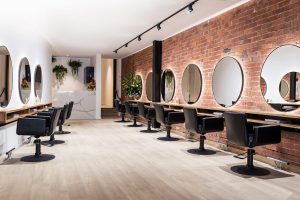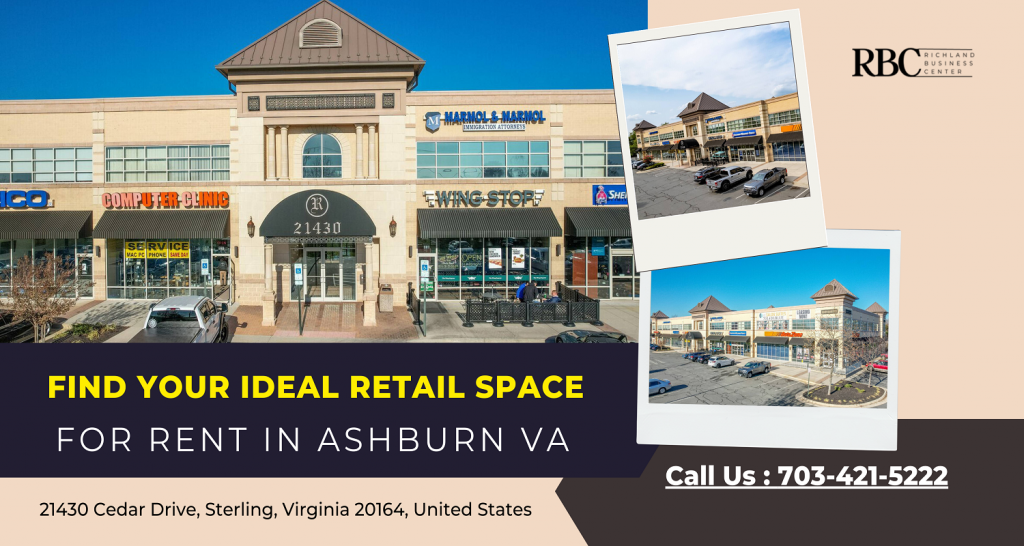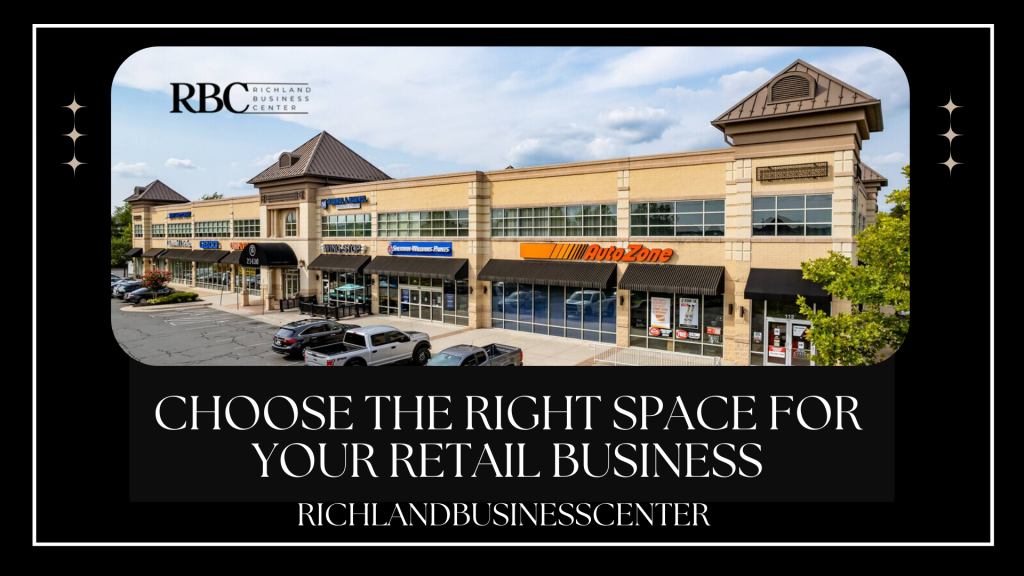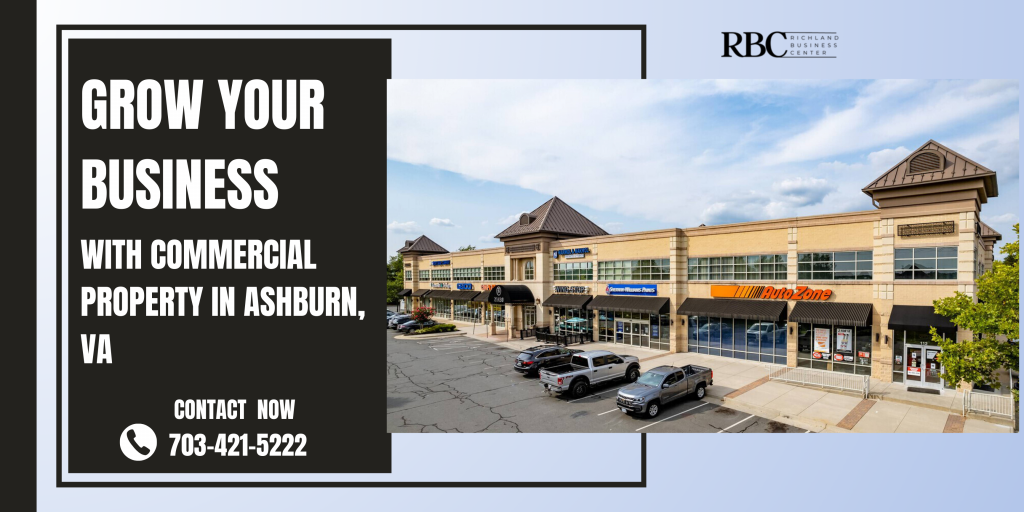How to Find Perfect Retail Spaces near Ashburn, Virginia
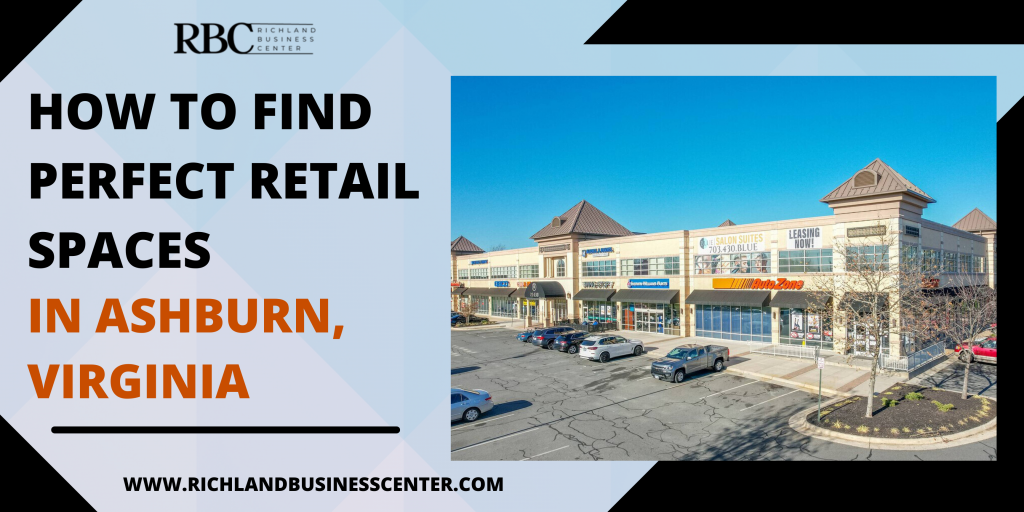 Welcome to our complete information on finding the perfect retail space near Ashburn, VA, a vibrant and thriving community ripe with opportunities for entrepreneurs and businesses alike. In this blog, we’ll delve deep into the intricacies of navigating the retail real estate landscape, armed with actionable insights and expert advice. Whether you’re a seasoned retailer or a budding entrepreneur, this guide is your roadmap to success in Ashburn.
Welcome to our complete information on finding the perfect retail space near Ashburn, VA, a vibrant and thriving community ripe with opportunities for entrepreneurs and businesses alike. In this blog, we’ll delve deep into the intricacies of navigating the retail real estate landscape, armed with actionable insights and expert advice. Whether you’re a seasoned retailer or a budding entrepreneur, this guide is your roadmap to success in Ashburn.
Understanding the Retail Market near Ashburn
In the dynamic commercial hub of Ashburn, Virginia, the search for retail space for rent is a critical endeavor for entrepreneurs and businesses looking to establish or expand their presence. This section delves deeper into the nuances of the retail market, with a focused lens on the availability, trends, and considerations surrounding retail space for rent near Ashburn, VA.
The Availability Spectrum: Diverse Options Await
Ashburn presents a diverse spectrum of retail spaces available for rent, catering to a myriad of business needs and preferences. From compact storefronts in bustling shopping centers to expansive commercial complexes along major thoroughfares, the market offers a plethora of choices, each with its unique advantages and opportunities.
Trends and Demand Dynamics: Insights into Market Preferences
Understanding the prevailing trends and demand dynamics near Ashburn’s retail space market is paramount for prospective tenants. The market is witnessing a surge in demand for versatile, adaptable spaces that can accommodate a range of retail concepts, from traditional storefronts to pop-up shops and experiential venues. Analyzing these trends empowers businesses to align their leasing decisions with evolving consumer preferences.
Location Matters: The Importance of Strategic Positioning
Location remains a key determinant in the search for retail space for rent near Ashburn. Prime locations in high-traffic areas command premium rents, offering businesses unparalleled visibility and access to potential customers. However, factors such as proximity to complementary businesses, parking availability, and accessibility to major transportation routes also influence the desirability and viability of a retail space.
Navigating Lease Agreements: Ensuring Favorable Terms
Securing a retail space for rent near Ashburn entails navigating the complexities of lease agreements with diligence and foresight. Negotiating favorable terms is essential, encompassing considerations such as lease duration, rental rates, maintenance responsibilities, and provisions for utilities and common area expenses. By leveraging market insights and seeking professional guidance, businesses can safeguard their interests and maximize the value of their lease agreements.
ReFind your ideal workspace today in Sterling, VA! Explore our office suites for rent now.
Factors Influencing Retail Space Selection
In the intricate dance of selecting the perfect retail space, myriad factors come into play, each wielding its own influence on the ultimate success or failure of a business venture. This section delves into the multifaceted landscape of retail space selection, unraveling the key factors that entrepreneurs and businesses must consider when embarking on their quest for the ideal storefront.
Location Considerations: The Cornerstone of Success
At the heart of retail space selection lies the pivotal consideration of location. A prime location can serve as a magnet for foot traffic, offering businesses unparalleled visibility and exposure to potential customers. Factors such as proximity to residential areas, accessibility via major transportation routes, and presence within established commercial districts all contribute to the allure of retail space and its potential to drive sales and growth.
Foot Traffic Analysis: Harnessing the Power of Pedestrian Flow
Foot traffic serves as a barometer of a retail space’s viability and potential for success. Analyzing pedestrian flow patterns enables businesses to gauge the level of customer engagement and interaction within a particular location. High foot traffic areas, such as shopping malls, downtown districts, and busy thoroughfares, offer prime opportunities for retailers to capture the attention of passing shoppers and convert them into loyal patrons.
Accessibility and Parking: Removing Barriers to Entry
The ease of access and availability of parking are critical considerations that can either enhance or impede the appeal of a retail space. Ample parking facilities and convenient accessibility via public transportation or major roadways ensure that customers can reach the retail destination with ease, thereby eliminating potential barriers to entry and maximizing the likelihood of patronage.
Aesthetic Appeal and Ambiance: Crafting Memorable Experiences
Beyond practical considerations, the aesthetic appeal and ambiance of a retail space play a pivotal role in shaping the customer experience. A visually appealing storefront, thoughtfully curated interior design, and inviting atmosphere create a sense of allure and enticement, drawing customers in and encouraging prolonged engagement and exploration.
Infrastructure and Amenities: Enabling Operational Efficiency
Practical considerations such as infrastructure and amenities are instrumental in facilitating seamless operations within a retail space. Adequate utilities, HVAC systems, and restroom facilities ensure the comfort and convenience of both customers and staff, while amenities such as Wi-Fi connectivity, security features, and customizable layouts enhance the versatility and adaptability of the space to meet evolving business needs.
In essence, the selection of retail space is a multifaceted endeavor that requires careful consideration of numerous factors, each playing a crucial role in determining the success and viability of a business venture. By prioritizing location, analyzing foot traffic patterns, ensuring accessibility and parking availability, cultivating aesthetic appeal and ambiance, and optimizing infrastructure and amenities, businesses can lay the foundation for a thriving retail operation poised for long-term success and sustainability.
Types of Retail Spaces Available
In the dynamic landscape of retail, businesses are presented with a myriad of options when it comes to selecting the right space for their operations. This section delves into the various types of retail spaces available, each offering unique advantages and catering to different business needs and preferences.
Commercial Complexes: The Hub of Activity
Commercial complexes serve as bustling hubs of activity, housing a diverse array of retail establishments, restaurants, and entertainment venues under one roof. These expansive spaces offer businesses the opportunity to benefit from shared foot traffic and amenities, fostering a sense of community and collaboration among tenants. With ample parking and centralized management, commercial complexes provide a convenient and dynamic environment for retailers to thrive.
Strip Malls: Retail Convenience Redefined
Strip malls, characterized by a linear layout of retail storefronts, offer businesses unparalleled visibility and accessibility. Located along busy thoroughfares or in densely populated areas, strip malls attract a steady stream of foot traffic, making them an ideal choice for retailers seeking high visibility and exposure. With flexible leasing options and a diverse tenant mix, strip malls provide businesses with the opportunity to tap into a captive audience and capitalize on impulse purchases.
Standalone Buildings: Crafting a Distinct Identity
Standalone buildings offer businesses the opportunity to carve out a distinct identity and establish a strong brand presence within the community. These freestanding structures, often situated in prominent locations or high-traffic areas, provide ample space for customization and branding, allowing retailers to create a unique and memorable storefront experience. With greater autonomy and control over their environment, businesses can tailor the layout and design of standalone buildings to reflect their brand ethos and engage customers on a deeper level.
Pop-Up Shops: Embracing Flexibility and Innovation
Pop-up shops represent a dynamic and innovative approach to retail space utilization, offering businesses the opportunity to temporarily occupy vacant storefronts or unconventional spaces for short-term activations or promotional events. These ephemeral retail experiences allow businesses to test new markets, launch exclusive product lines, or generate buzz around their brand in a cost-effective and low-risk manner. With the flexibility to adapt to changing consumer trends and preferences, pop-up shops enable businesses to stay agile and responsive in a rapidly evolving retail landscape.
In conclusion, the retail space market offers a diverse array of options, each catering to different business needs and objectives. Whether it’s the bustling environment of commercial complexes, the convenience of strip malls, the autonomy of standalone buildings, or the innovation of pop-up shops, businesses have a wealth of choices at their disposal to create immersive and engaging retail experiences that resonate with customers and drive success.
Researching Potential Retail Spaces
In the quest for the ideal retail space, thorough research serves as the compass guiding businesses towards their ultimate destination. This section delves into the essential steps and considerations involved in researching potential retail spaces, and empowering entrepreneurs to make informed decisions that align with their goals and objectives.
Online Databases and Listings: The Gateway to Exploration
The journey begins with an exploration of online databases and listings, which serve as a treasure trove of information on available retail spaces. Websites, such as commercial real estate platforms and property listing portals, offer businesses access to a comprehensive database of retail properties, complete with detailed descriptions, photographs, and leasing information. By leveraging these online resources, businesses can cast a wide net, surveying the market and identifying potential contenders from the comfort of their own devices.
Site Visits: Seeing is Believing
While online research provides a valuable starting point, there’s no substitute for an in-person site visit to truly gauge the suitability of a retail space. Site visits allow businesses to assess key factors such as location, foot traffic, accessibility, and overall condition firsthand. By immersing themselves in the physical space, businesses can gain a deeper understanding of its potential and envision how it aligns with their vision and requirements.
Neighborhood Exploration: Context is Key
Beyond the confines of the retail space itself, it’s essential to explore the surrounding neighborhood and community to gain a holistic understanding of the environment in which the business will operate. Factors such as demographics, consumer behavior, competition, and local amenities all play a crucial role in shaping the desirability and viability of a retail location. By immersing themselves in the local context, businesses can identify synergies, uncover opportunities, and assess the compatibility of the neighborhood with their target market and brand identity.
Networking and Expert Advice: Tapping into Insights
In addition to independent research, businesses can benefit from tapping into the insights and expertise of industry professionals and local networks. Real estate agents, property managers, business associations, and fellow entrepreneurs can provide valuable insights and recommendations based on their knowledge and experience of the local market. By building relationships and seeking advice from trusted sources, businesses can gain access to insider information, uncover hidden gems, and navigate the complexities of the retail space market with confidence and clarity.
In summary, researching potential retail spaces is a multifaceted process that requires a blend of online exploration, site visits, neighborhood immersion, and expert advice. By diligently researching and evaluating each prospective location against their criteria and objectives, businesses can identify the perfect fit that aligns with their vision and sets the stage for success in the competitive retail landscape.
ReFind your ideal workspace today in Sterling, VA! Explore our office suites for rent now.
Negotiating Lease Agreements
Negotiating lease agreements is a pivotal step in securing a retail space, representing the intersection of business strategy, financial management, and legal acumen. This section delves into the intricacies of lease negotiations, equipping businesses with the knowledge and strategies needed to navigate this critical phase with confidence and success.
Understanding Lease Terms: The Foundation of Negotiation
Before diving into negotiations, businesses need to have a thorough understanding of the lease terms and provisions. Lease agreements typically encompass a range of terms, including lease duration, rental rates, escalation clauses, maintenance responsibilities, renewal options, and tenant improvements. By familiarizing themselves with the terms and implications of each clause, businesses can enter negotiations armed with clarity and preparedness.
Establishing Priorities: Setting the Stage for Success
Successful lease negotiations hinge on clear communication of priorities and objectives. Businesses should identify their non-negotiables, such as budget constraints, space requirements, and operational needs, as well as their areas of flexibility. By establishing priorities upfront, businesses can guide negotiations towards outcomes that align with their strategic goals and financial constraints.
Negotiation Strategies: Finding Common Ground
Negotiation is inherently a collaborative process, requiring both parties to find common ground and mutual benefit. Businesses should approach negotiations with a spirit of openness and flexibility, seeking creative solutions that address their needs while also accommodating the landlord’s objectives. Strategies such as bundling concessions, exploring alternative lease structures, and leveraging market conditions can help businesses secure favorable terms while maintaining positive rapport with the landlord.
Due Diligence: Assessing the Fine Print
Amidst the negotiations, businesses must conduct due diligence to ensure that the lease agreement aligns with their interests and safeguards their rights. This includes reviewing the lease document in detail, seeking legal advice if necessary, and clarifying any ambiguities or discrepancies before finalizing the agreement. By conducting thorough due diligence, businesses can mitigate the risk of surprises or disputes down the line.
Building Relationships: Cultivating Long-Term Partnerships
Beyond the transactional aspects, lease negotiations present an opportunity to build relationships and cultivate long-term partnerships with landlords and property managers. Maintaining open lines of communication, demonstrating professionalism and integrity, and fostering a spirit of collaboration can pave the way for positive and mutually beneficial relationships that endure beyond the lease agreement.
Conclusion
In conclusion, for new retailers seeking to thrive in Ashburn, VA’s vibrant retail landscape, mastering effective marketing strategies is paramount. By leveraging a blend of local advertising to connect with the community, digital marketing tactics to expand their online presence, promotions to incentivize engagement, partnerships to amplify their reach, and customer experience initiatives to foster loyalty, retailers can carve out a distinct identity and drive success in their ventures. With a strategic approach to marketing and a keen understanding of the diverse opportunities available in retail space for rent near Ashburn, VA, new retailers can unlock their full potential, establish a strong brand presence, and capture the hearts and minds of their target audience, ultimately positioning themselves for long-term growth and prosperity.
Frequently Asked Questions (FAQs)
Q1. What types of retail spaces are available at Richland Business Center near Ashburn, Virginia?
Ans: Richland Business Center offers a variety of retail spaces suitable for different businesses, including storefronts, commercial units, and flexible lease options to accommodate diverse needs.
Q2. How can I find the perfect retail space for my business near Ashburn, Virginia?
Ans: Our comprehensive listings and expert guidance at Richland Business Center make it easy for you to find the ideal retail space. Explore our available options and reach out to our team for personalized assistance.
Q3. Is Richland Business Center conveniently located in Ashburn, Virginia?
Ans: Yes, Richland Business Center is strategically located near Ashburn, Virginia, with easy access to major highways, public transportation, and nearby amenities, making it a prime location for retail businesses.

